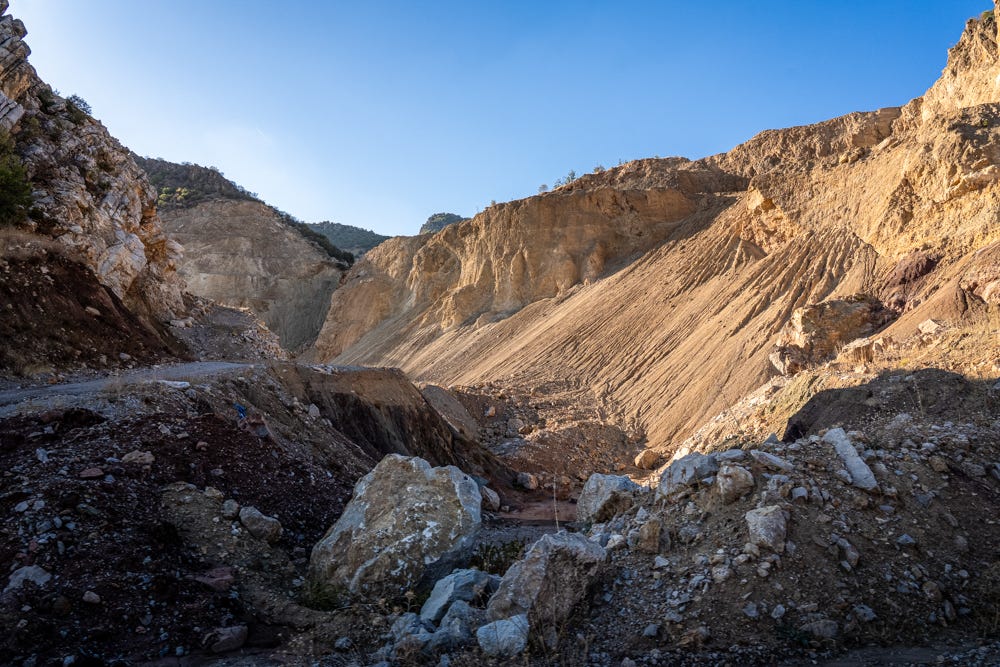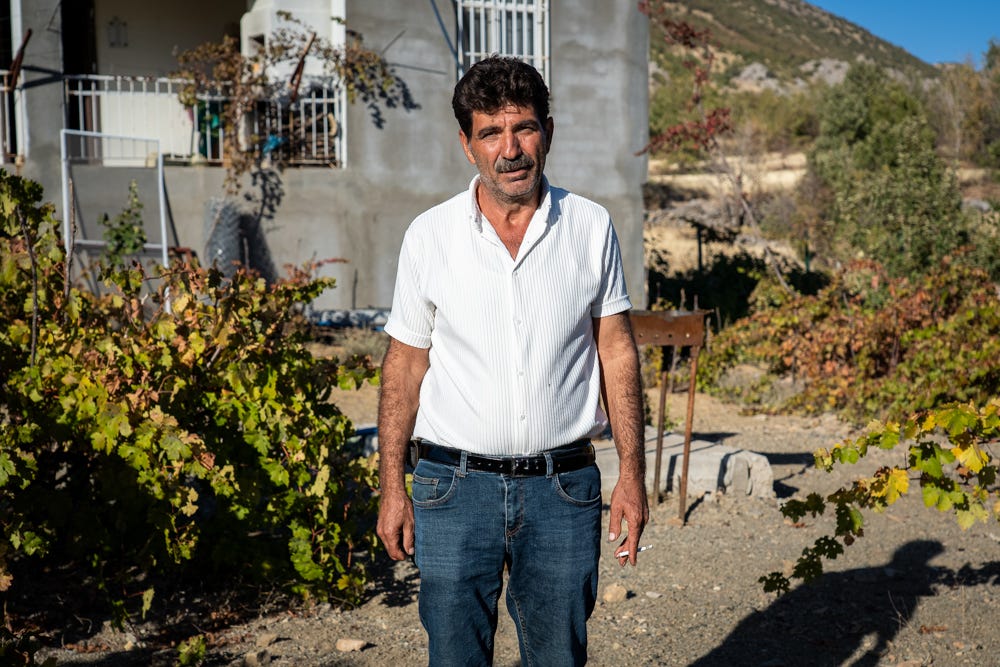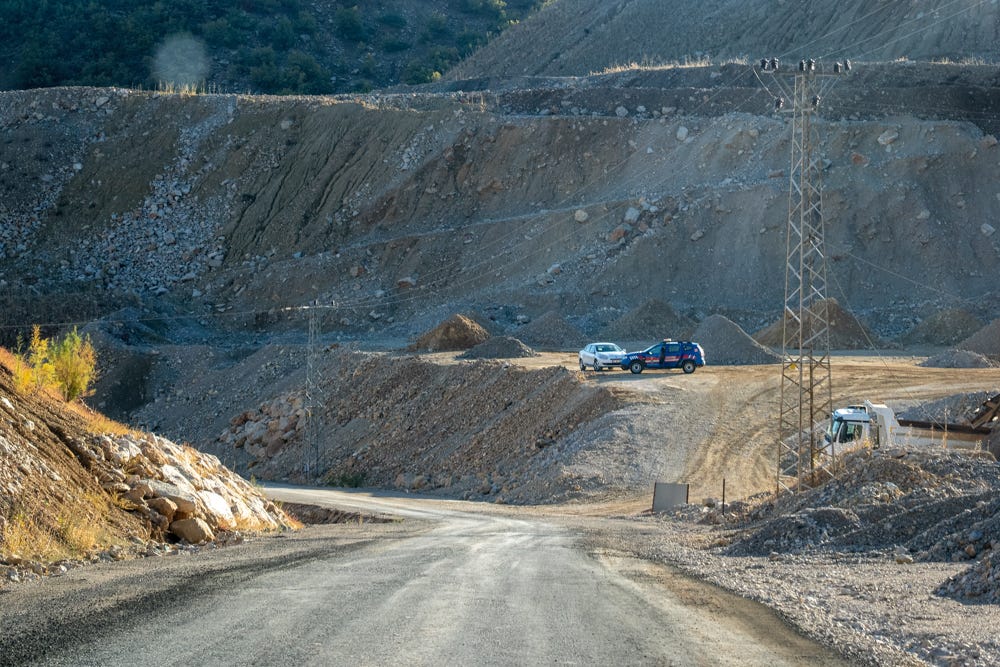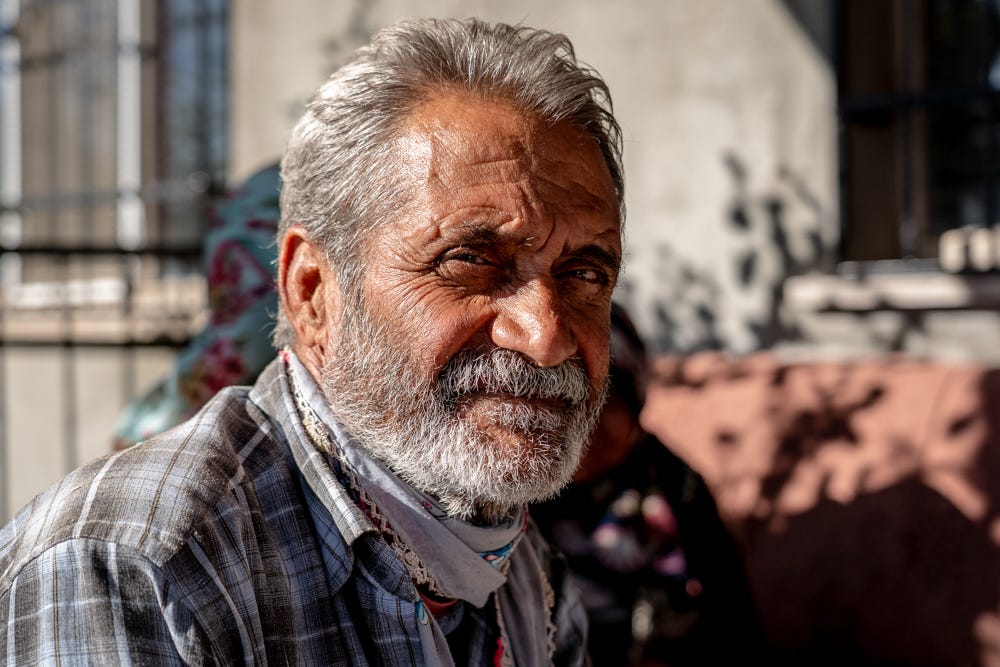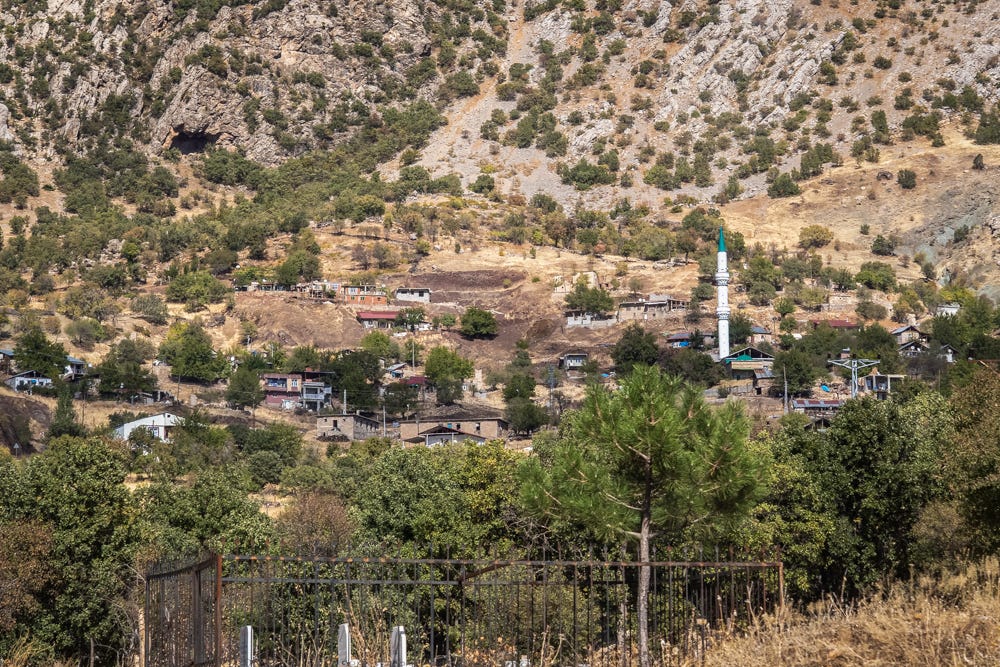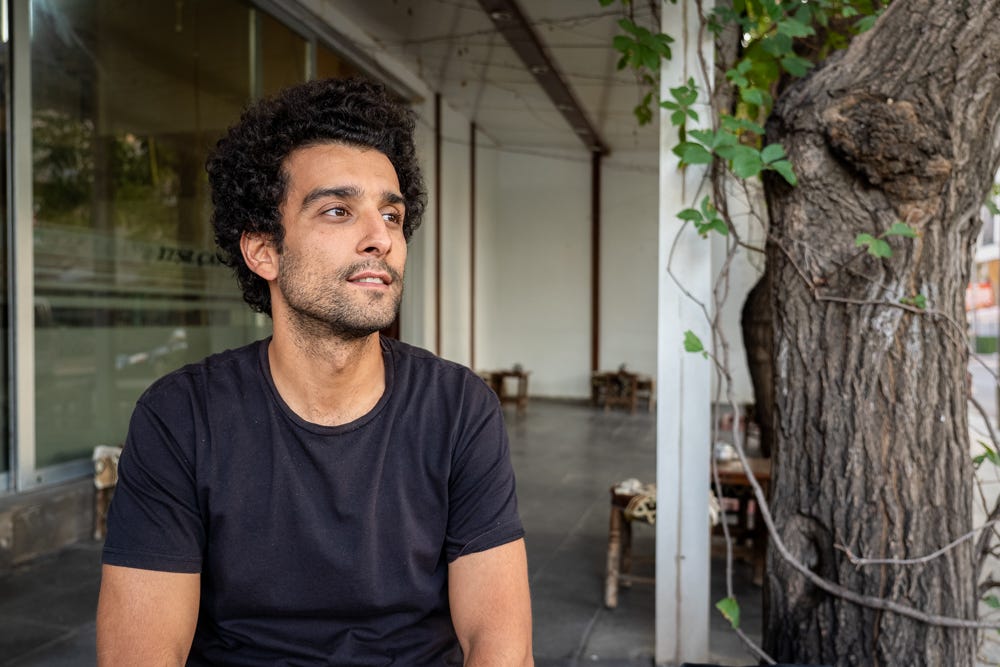DIYARBAKIR — The village of Kurşunlu (Pirejman in Kurdish) is settled high up in the mountains to the north of Diyarbakır. Though violent clashes between PKK guerrillas and the Turkish state ceased some years ago, the sound of explosions still occasionally shattered the serenity of the village. These days, however, it’s not jets or rockets but dynamite from the nearby mines.
“If I cannot live in peace in my own village, in my own land, what peace are they talking about?” Mehmet Olgaç told Turkey recap, referring to the ongoing peace talks between Ankara and the PKK. Olgaç is the headman of Kurşunlu, where the locals’ lives were turned upside down by nearby mining activity.
The countryside of Diyarbakır and the wider southeast region of Turkey is rich in natural resources. Lead, phosphate and petroleum are just a few of the lucrative materials beneath the surface. Yet, decades of conflict deterred investment in the area.
That risk calculus is changing. The PKK’s more than 40-year armed insurgency against the Turkish state could be coming to an end with negotiations that began late last year. Progress has been slow, but on Oct. 26 the PKK announced it was withdrawing all remaining forces from Turkey.
Reduced security tensions could spark an investment rush in one of Turkey’s least developed regions, led by both the state and private companies. On the other hand, activists and locals told Turkey recap that they fear for their villages and being displaced again – this time by mining and resource extraction instead of conflict.
Ahmet Inan, head of the Diyarbakır Bar Association’s Environmental Commission, oversees many legal cases, including those filed by Kurşunlu residents against the mining company. He stressed that many local residents make their living from the land and view outside interventions through their experiences with conflict and dispossession.
“One reason people were forced to leave their villages in the 90s was to destroy the Kurdish people’s way of life, which was tied to the land,” Inan told Turkey recap. “Now, with many different projects, the Kurdish regional capital and the government are working together to set the stage for this to happen [again].”
In recent years, Turkey’s Kurdish majority regions have seen thousands of applications to the Environment Ministry for business licenses with potentially severe environmental impact. In Dec. 2024, the government also unveiled an ambitious development plan featuring sweeping irrigation and industrial infrastructure.
Many of these projects sparked public outcry and protests over their potential ecological impact. “This will undermine peace, because ecological values are at the very heart of peace,” Inan said.
Mining the east
In Kurşunlu, mining for lead and zinc began over a decade ago. The company leading the extractions is Ölmez Madencilik. Its owner, İsmet Ölmez, is a Kurdish businessman with strong ties to the ruling Justice and Development Party (AKP).
There is a checkpoint at the entrance of the village manned by state security forces with assault rifles and an armored vehicle. They stop our car, check IDs and ask detailed questions regarding the purpose of our visit.
“They are Turkish soldiers but act like the private security of Ölmez Madencilik,” Olgaç said as he drives through the roadblock. A little later, he adds: “You see the white pickup behind us? They are following us.”
The white pickup turns back at the entrance to Kurşunlu. But hours later, when we make our way back, it once again tails us all the way to the nearby town of Dicle. In the front, two men sit in uniforms and dark sunglasses.
According to Olgaç, the mine exploration area has increased over twentyfold over the years. “Two nearby villages will be completely destroyed,” he added.
The Ministry of Environment approved the mine’s expansion in 2022 from 25 hectares to 530 hectares, despite objections from locals. As part of the enlargement, over 200 hectares of trees have been cut down, while mining explorations are accompanied by violent dynamite blasts.
“When they detonate dynamite [in the hills], the whole village gets covered by a thick layer of dust,” said Ahmet Ceylan, another villager, who used to work in mines before retiring. “That dust is filled with lead and zinc. These are heavy metals, it is poisonous. Our fruit trees, our vineyards, all dried up. We hardly harvest anything.”
The locals claim the mines harm not only their crops and way of life, but their physical health, too. They are certain that the heavy metals in the dust are responsible for the sharp spike in cancer, bronchitis and other illnesses in the village.
“Look at Kirvan,” Olgaç noted, pointing to his friend sitting opposite. “He had an operation. They had to cut out 35 percent of his intestines. He almost died.”
“You can’t just tell people ‘I’ll give you a job’ after they’ve gotten cancer, after their homes have been destroyed, after they’ve lost their livestock, their vineyards, their beehives and their entire livelihood,” he added.
Turkey recap contacted Ölmez Madencilik for comment, but did not receive a reply.
Locals’ distrust of the government runs deep, and not without reason. Kurşunlu was one of the thousands of villages that were forcefully emptied by security forces in the 1990s. These were mostly villages that the army suspected of aiding or sheltering PKK guerrillas.
“There used to be heavy fighting around here, with F-16s, with Cobra helicopters,” Olgaç explained. “During an operation in 1992, three of our shepherds were massacred. The Cobra helicopters gunned down even the animals. That happened in July that year. In November, they burned down the village.”
He refers to the conflict as a “civil war”.
The 105 households living here at the time moved to different parts of the country, some even abroad. Since 2002, some have started to slowly return, but it is mostly the elderly.
“Look, this village was emptied, depopulated at gunpoint in 1992,” Olgaç continued. “They have since changed the system. Now they are trying to depopulate the southeast [of Turkey] with mines, with petrol exploration, with hydroelectric dams.”
Rich in resources
Others, however, view developments as necessary to bring much-needed financial prosperity — and, in turn, stability — to a region where the GDP per capita is just above half the national average and unemployment rates are high.
According to Engin Yeşil, head of the Diyarbakır Commodity Exchange, several domestic businesses already invest in the area. Lasting peace would further help attract major investments and foreign companies that it currently lacks.
“Once this peace becomes stable and secure, development will follow, and investments will gain momentum more quickly,” Yeşil told Turkey recap.
Yeşil hopes that after decades of young people moving to the west of the country or abroad, large-scale developments could not only stop but also reverse this trend.
“The top priority should be to facilitate return to villages and rapidly complete related agricultural infrastructure investments,” Yeşil said.
Currently, Diyarbakır’s main sources of employment are agriculture and its mines. Additionally, the area is home to most of Turkey’s limited oil reserves.
In May 2025, however, Energy and Natural Resource Min. Alparslan Bayraktar announced a “game changer” after new geological surveys indicated that Diyarbakır could hold up to 6.1 billion barrels of shale oil, valued at around 420 billion dollars and enough to supply Turkey’s needs for 15 years. This comes alongside recently discovered and opened oil fields in Şırnak’s Gabar.
“Where once the sounds of gunfire echoed through the mountains, today it is the sound of production,” Min. Bayraktar wrote in a Nov. 4 social media post. He added that Gabar is the most tangible embodiment of their vision of a ‘Terror-free Turkey.’
Yeşil also pins high hopes on the recently launched $14 billion state-led development plan, the Southeastern Anatolia Project (GAP). The initiative incorporates ambitious infrastructure works - including the country’s largest irrigation tunnel - as well as agriculture, tourism and industrial projects aimed at creating over half a million jobs.
GAP takes its name from a contentious 1980s program that reshaped Turkey’s Kurdish regions through extensive damming. This resulted in swathes of arable land, but also flooded hundreds of villages and heritage sites.
According to Yeşil, railways linking the landlocked, Kurdish-majority provinces to ports, as well as the further completion of the Silvan and Dicle Kralkızı dam projects, will be most vital for economic growth.
“After our dams are completed, the region will develop both industrially and economically,” Yeşil said. He estimates that these dams could create up to 300,000 jobs by opening vast tracts of land to irrigation and boost agricultural yields by 200–300 percent. “It would bring hope. It would create job opportunities for everyone.”
Current estimates indicate the Silvan dam alone will flood about 40 villages. This has led activists like the Bar Association’s Inan to view Yeşil’s vision for the region as detrimental to the Kurdish people’s way of life, and also to the ongoing peace process.
Some local Kurdish businessmen want to turn this [peace] process into an opportunity to invest and make a profit,” Inan said. “And, unfortunately, they have collaborators inside the bar association, the municipality and the [pro-Kurdish DEM] party.”
He claims to have received warnings, then threats, for his work and activism.
“When we visit the villages, that’s what people tell us. They say, ‘They want to drive us out of here. They are destroying our lives,’” Inan said. “If the Turkish state does not change its energy, mining and dam policies, this peace process cannot succeed.”
Turkey recap reached out to the Ministry of Energy and Natural Resources and the Ministry of Environment, Urbanization and Climate Change, but did not receive a reply by the time of publication.
Turkey recap is an independent, reader-supported newsletter that helps people make sense of the fast-paced Turkey news cycle. Contact us: info@turkeyrecap.com.
Subscribe here on Substack (or on Patreon for discount options). Paid subscribers get full access to our recaps, reports, members-only chat and news tracking tools.
We are an affiliate of the Global Forum for Media Development and aim to create balanced news that strengthens local media by supporting journalists in Turkey.
Diego Cupolo, Editor-in-chief
Emily Rice Johnson, Deputy editor
Ceren Bayar, Parliament correspondent
Yıldız Yazıcıoğlu, Parliament correspondent
Günsu Durak, Turkish language editor
Demet Şöhret, Social media and content manager



